
Marking ten years of the iPhone – a device Apple often champions as one of the modern world’s defining gadgets – was never an anniversary the company was likely to let pass by quietly.
So, the iPhone X appeared – a major redesign and rethink of some of the core features that have made the iPhone such a force for the last decade.
The home button is gone, the phone can be wirelessly charged, supports facial recognition technology and the screen is larger and OLED for the first time.
Apple has called it the “future of the smartphone” and though most of the new features have actually been seen before, Apple has a habit of being the watershed for technology – making the statement seem quite believable.
So, what does the future of the smartphone look like up close?
Glass
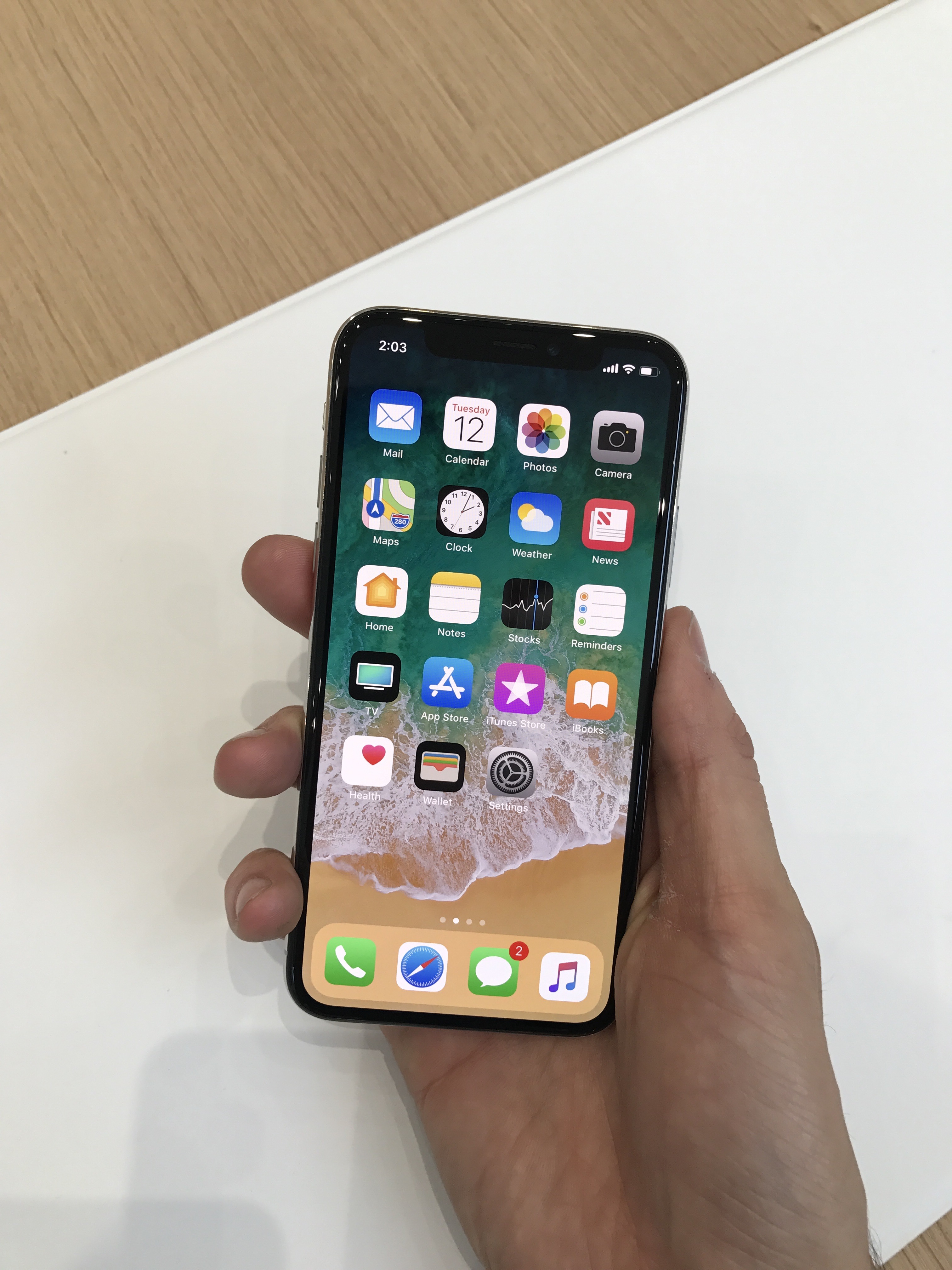 (Martyn Landi/PA)
(Martyn Landi/PA)
The signature of the iPhone X is the new-look face – a 5.8-inch Super Retina display that covers almost all of the front panel of the device.
The X looks like no iPhone before it, with the OLED screen reaching all four corners of the device for the first time.
This blanket coverage of the phone’s face, combined with the brighter, more colourful display, make a striking first impression.
The biggest change, of course, is the removal of the home button, a step that while slightly jarring and unfamiliar at first, has in fact improved the look of this iPhone no end.
Flip the phone over and it’s all change too. Much like on the iPhone 8 and 8 Plus, the X has a glass back for the first time, giving the phone a more uniform feel.
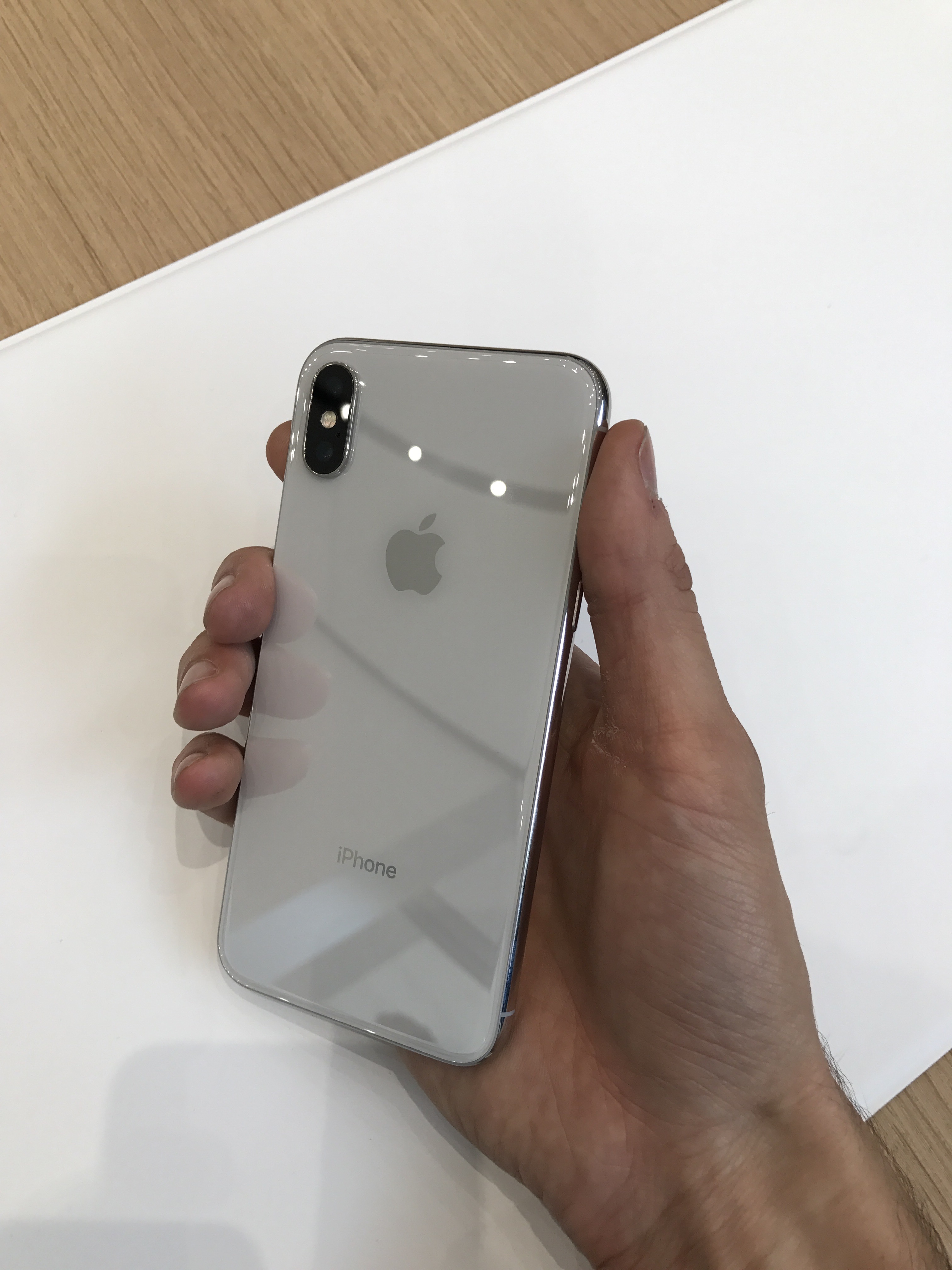 (Martyn Landi/PA)
(Martyn Landi/PA)
However, this is offset by increased glare and reflection off the back. It’s very noticeable when trying to photograph the X under bright lights and fingerprints show up easily too.
More change comes with the camera layout, with the dual lens now sitting vertically next to each other rather than side-by-side.
Perhaps the most pleasing aspect of the iPhone X form factor is that this device offers a larger screen than the larger 7 Plus, as well as better dual cameras, on a phone similar in size to a traditional iPhone.
It is big features without the bulk and that is likely to entice plenty.
Colour
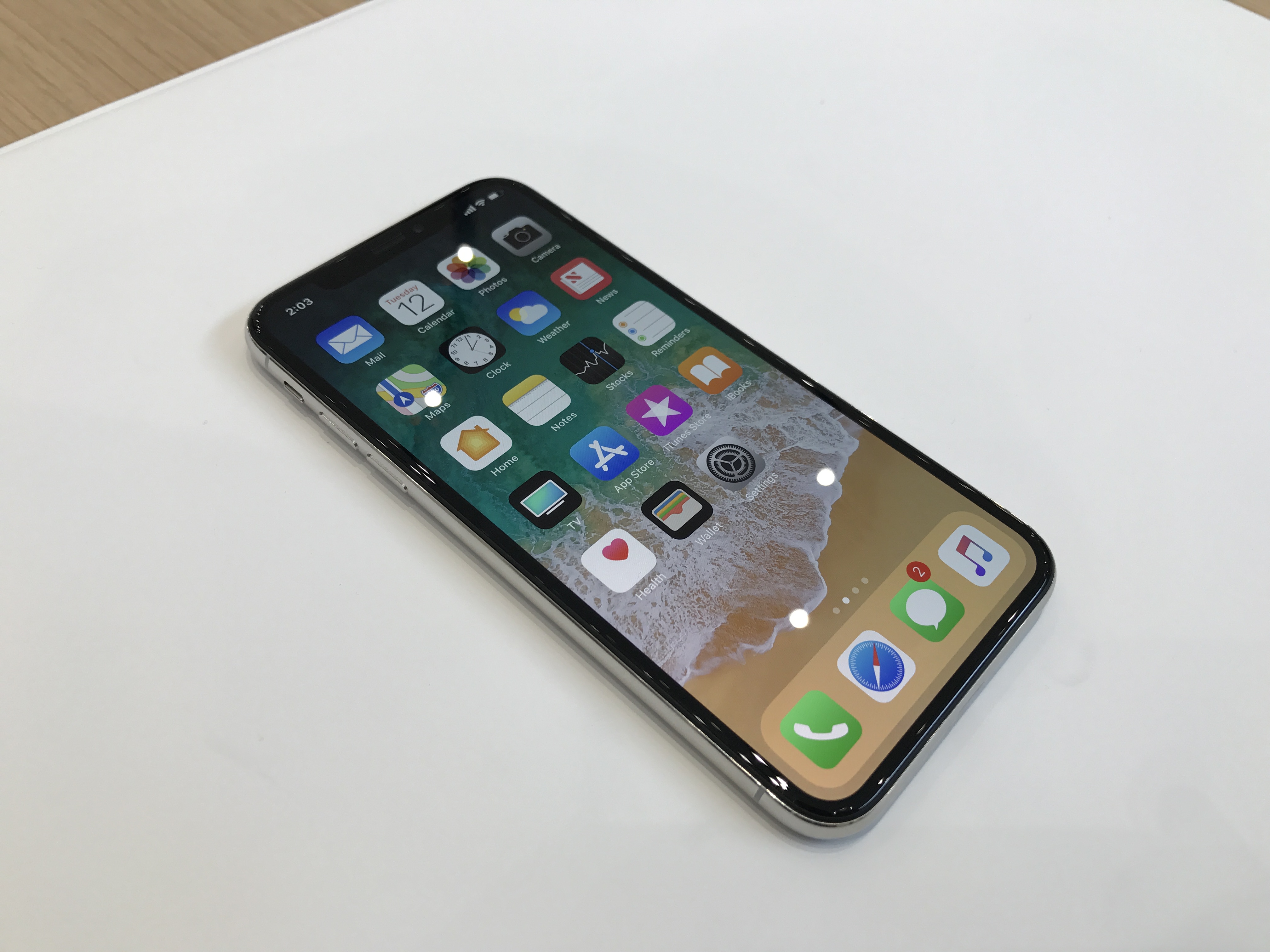 (Martyn Landi/PA)
(Martyn Landi/PA)
Enlarging the screen on the iPhone X marks a drastic change in design step for Apple, but it makes plenty of sense when you see it in action.
Samsung has been wowing for some time with the colour range and screen quality of its Galaxy S and Note flagships – now the iPhone X Super Retina display looks like a genuine counter to them.
Combined with updates to the camera, photos taken and shown on the X look hugely impressive. The image quality and depth of colour seen here was good enough to rival anything seen elsewhere.
Swiping up to unlock and seeing the home screen for the first time is a great moment too – all that extra space is one plus, but app icons are brighter and sharper, the screen a lot more engaging than anticipated.
Camera
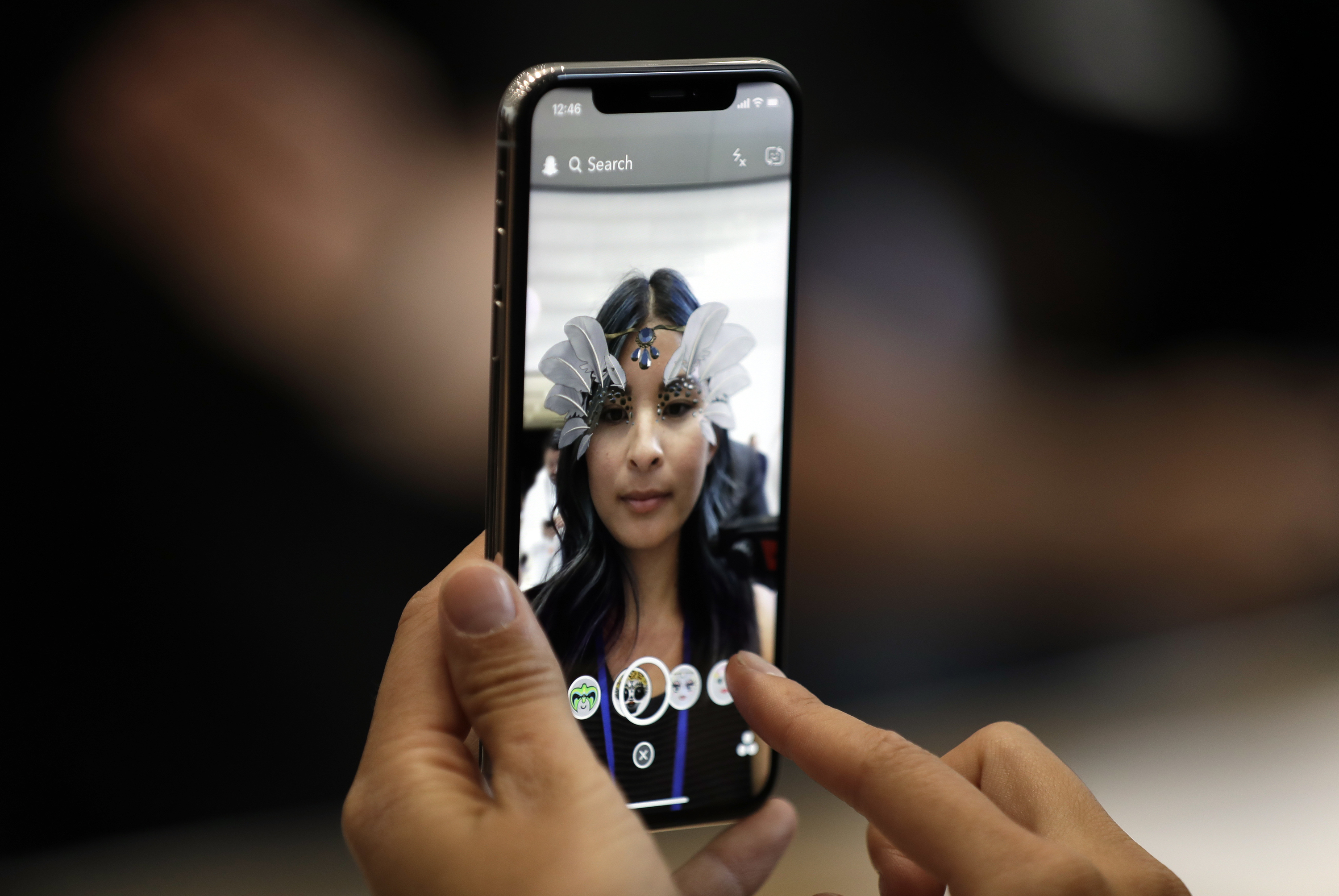 (Marcio Jose Sanchez/AP)
(Marcio Jose Sanchez/AP)
Both the front and rear facing cameras in the iPhone X have received a lot of attention and updates, but it is in the front-facing lens where the most interesting improvements can be found.
Firstly, there is the TrueDepth technology, which brings portrait mode photos to the front-facing camera for the first time – upping the selfie game significantly in the process.
Portrait mode enables users to play around with depth of field, blurring the background to their liking in portrait photos.
Portrait lighting is also a new feature and uses a simple mini scroll wheel in the camera app to tweak the amount of lighting effect applied to the faces of subjects in your images.
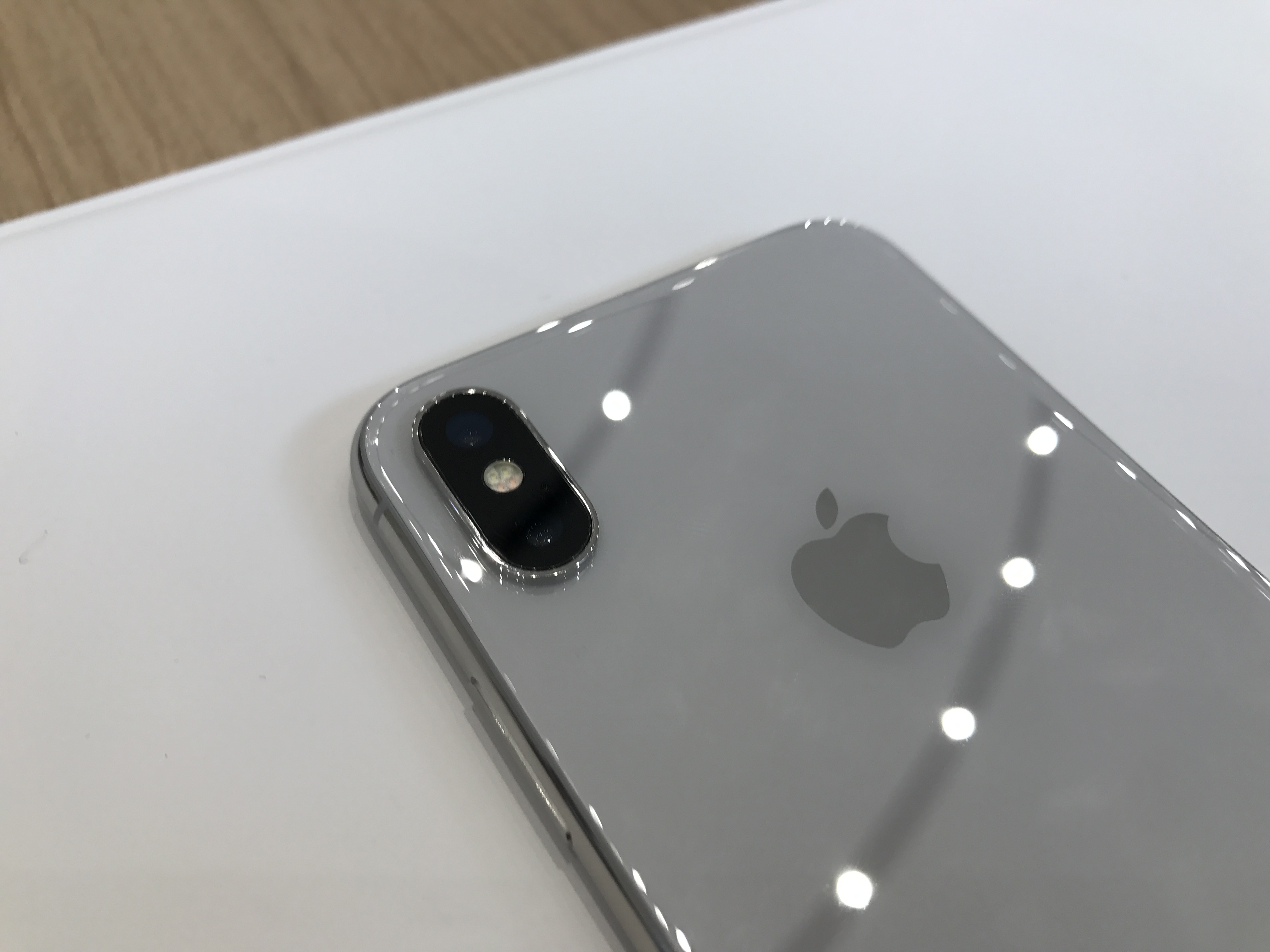 (Martyn Landi/PA)
(Martyn Landi/PA)
The front-facing camera is also surrounded by an array of new sensors as part of the much-talked-about Face ID facial recognition feature.
As well as being able to swiftly unlock the device using your face – though we only saw a brief demo it appeared to work fairly comfortably – the technology can also be used for far more fun exercises – Animoji, for example.
The animated emoji are powered by the movement of a user’s face when activated and are wonderfully responsive and fun to use. Once the X launches, expect to see them start to appear in your iMessage inbox pretty quickly.
The price question
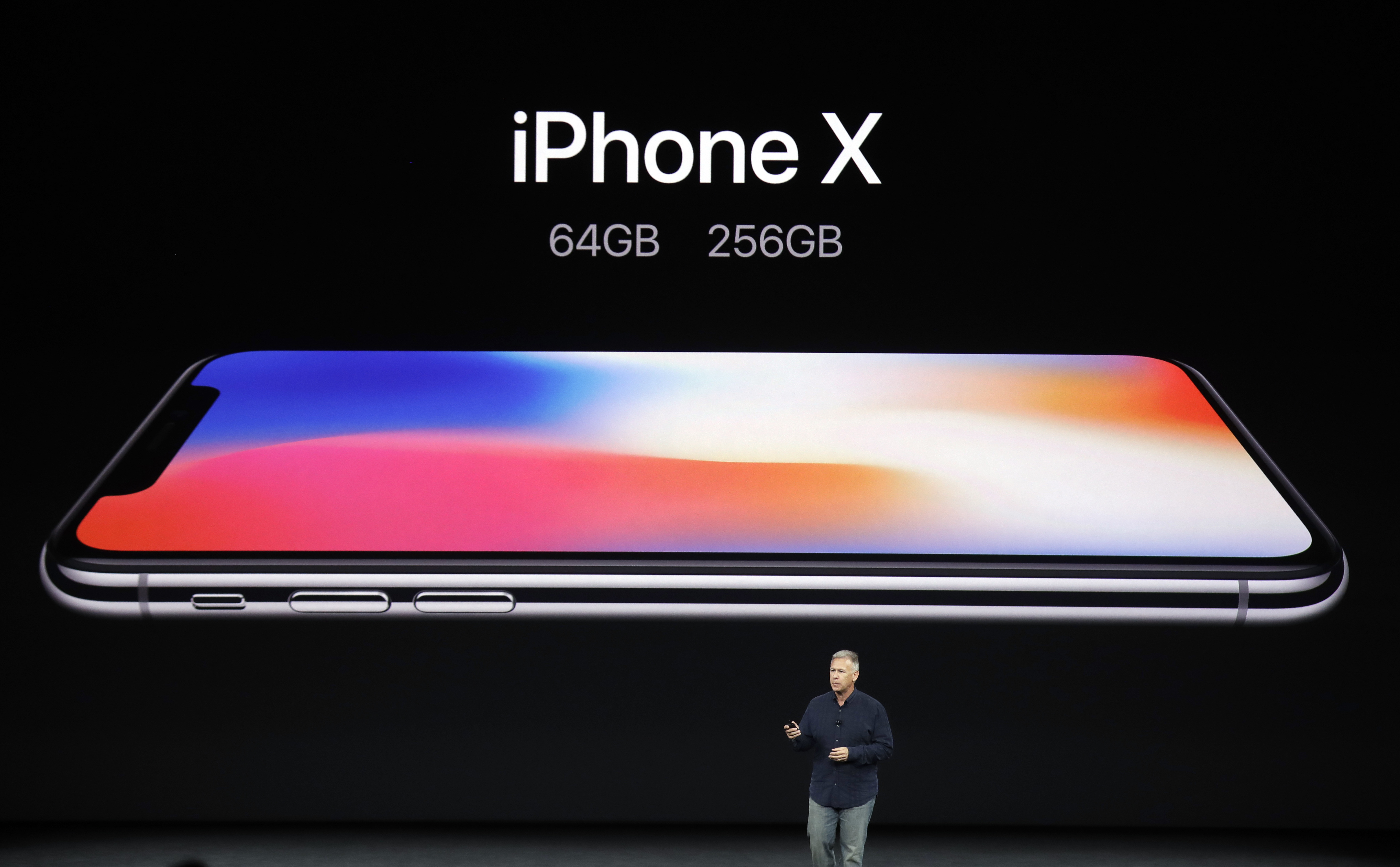 (Marcio Jose Sanchez/AP)
(Marcio Jose Sanchez/AP)
The big debate around the iPhone X has so far been dominated by the £999 starting price and whether the device can be considered value for that amount.
Firstly, it is worth noting that the £1,000 threshold is not as bold a leap forward as some have suggested – both Apple and Samsung already sell phones above the £900 line.
Mobile carrier discounts and monthly contracts also mean few are likely to pay the well-publicised price either.
However, the price tag is still hard to ignore and so the big question remains: is the iPhone X worth it?
Based on the build quality, the display and camera prowess, and crucial introduction of wireless charging to the already potent Apple ecosystem, it’s likely many consumers will say yes.
On first impressions, the X is a big enough leap forward to spark those on an iPhone 6 or older to consider upgrading and striking enough looks-wise to tempt Android and other platform users to give in and switch to iOS.
The iPhone X is the best-looking iPhone ever made and has the potential in the new features glimpsed so far to be the most well-rounded device the company has ever created.
Considering what has come before, that puts the iPhone X in a strong starting position.


Why are you making commenting on The Herald only available to subscribers?
It should have been a safe space for informed debate, somewhere for readers to discuss issues around the biggest stories of the day, but all too often the below the line comments on most websites have become bogged down by off-topic discussions and abuse.
heraldscotland.com is tackling this problem by allowing only subscribers to comment.
We are doing this to improve the experience for our loyal readers and we believe it will reduce the ability of trolls and troublemakers, who occasionally find their way onto our site, to abuse our journalists and readers. We also hope it will help the comments section fulfil its promise as a part of Scotland's conversation with itself.
We are lucky at The Herald. We are read by an informed, educated readership who can add their knowledge and insights to our stories.
That is invaluable.
We are making the subscriber-only change to support our valued readers, who tell us they don't want the site cluttered up with irrelevant comments, untruths and abuse.
In the past, the journalist’s job was to collect and distribute information to the audience. Technology means that readers can shape a discussion. We look forward to hearing from you on heraldscotland.com
Comments & Moderation
Readers’ comments: You are personally liable for the content of any comments you upload to this website, so please act responsibly. We do not pre-moderate or monitor readers’ comments appearing on our websites, but we do post-moderate in response to complaints we receive or otherwise when a potential problem comes to our attention. You can make a complaint by using the ‘report this post’ link . We may then apply our discretion under the user terms to amend or delete comments.
Post moderation is undertaken full-time 9am-6pm on weekdays, and on a part-time basis outwith those hours.
Read the rules hereLast Updated:
Report this comment Cancel